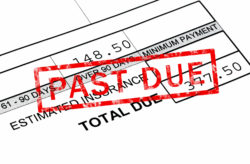Top Class Actions’s website and social media posts use affiliate links. If you make a purchase using such links, we may receive a commission, but it will not result in any additional charges to you. Please review our Affiliate Link Disclosure for more information.

The plaintiff, Timothy H., says he discovered in November 2017 that the debt collection company Perfection Collection was reporting the allegedly invalid debt on his credit report. In response, Timothy claims, he contacted the collection agency to ask about the supposed debt the owed, noting that his account was paid and up to date. He said this was an invalid debt.
According to his complaint, Timothy found that the debt was linked with an address that wasn’t his own, but despite this, Perfection Collection continued trying to collect the invalid debt. Even after a phone call discussing the issue, Timothy alleges that the agency made it seem like he was obligated to pay that invalid debt, despite the fact that it was not his.
Under the Fair Debt Collection Practices Act (FDCPA), a collection agency has a responsibility to communicate effectively to the least sophisticated consumer. Instead, Timothy’s lawsuit claims, the agency’s communication was false, deceptive, and misleading, and Timothy was not actually responsible for paying the debt, as he did not incur it in the first place, making it an invalid debt.
Timothy’s lawsuit was filed on May 2, 2018, in the U.S. District Court for the Eastern Division of the Northern District of Illinois.
The Fair Debt Collection Practices Act
The Fair Debt Collection Practices Act (FDCPA) is a set of debt collection regulations meant to help protect consumers from being taken advantage of, harassed, or threatened by a debt collection agency. The FDCPA was first enacted by Congress in 1978. In today’s climate, collection agencies have become more and more aggressive.
Many of these companies may work for major banks, credit card companies, and student loan companies, as well as debt buyers. In some cases, the companies may use illegal debt collection practices to collect on what’s owed them—or even an invalid debt. Indeed, millions of Americans may have been targeted with illegal and abusive debt collection practices, but most are not armed with the information necessary to know there are laws in place protecting them from such abuses.
Laws at both the federal and state level protect Americans from abusive debt collection practices. Debt collectors are not allowed to send confusing collection letters, make threats, harass, add fees, make robo-calls, or communicate with third parties about a debt, among others.
Under the FDCPA, if a debt collector is found to have violated these regulations, the consumer is entitled to statutory damages of $1,000, plus any actual or emotional damages.
Filing an FDCPA Lawsuit Over Invalid Debt
This investigation is seeing claimants across the nation, especially residents of Illinois, Indiana, and Wisconsin. If you have suffered from abusive debt collection practices like confusing letters, harassment, or others, you may be able to file an FDCPA lawsuit.
The FDCPA Invalid Debt Lawsuit is Case No. 1:18-cv-03125, in the U.S. District Court for the Eastern Division of the Northern District of Illinois.
Join a Free Unfair Collection Practices Class Action Lawsuit Investigation
If you’ve been hit with unfair debt collection practices, you may have a legal claim and could be owed compensation for violations of the Fair Debt Collection Practices Act (FDCPA).
DISCLAIMER: Debt collection itself is not illegal. However, debt collection firms collecting on consumer debts must adhere to the FDCPA. Even though debt attorneys are investigating these companies, their debt collection practices may be legal.
ATTORNEY ADVERTISING
Top Class Actions is a Proud Member of the American Bar Association
LEGAL INFORMATION IS NOT LEGAL ADVICE
Top Class Actions Legal Statement
©2008 – 2024 Top Class Actions® LLC
Various Trademarks held by their respective owners
This website is not intended for viewing or usage by European Union citizens.














